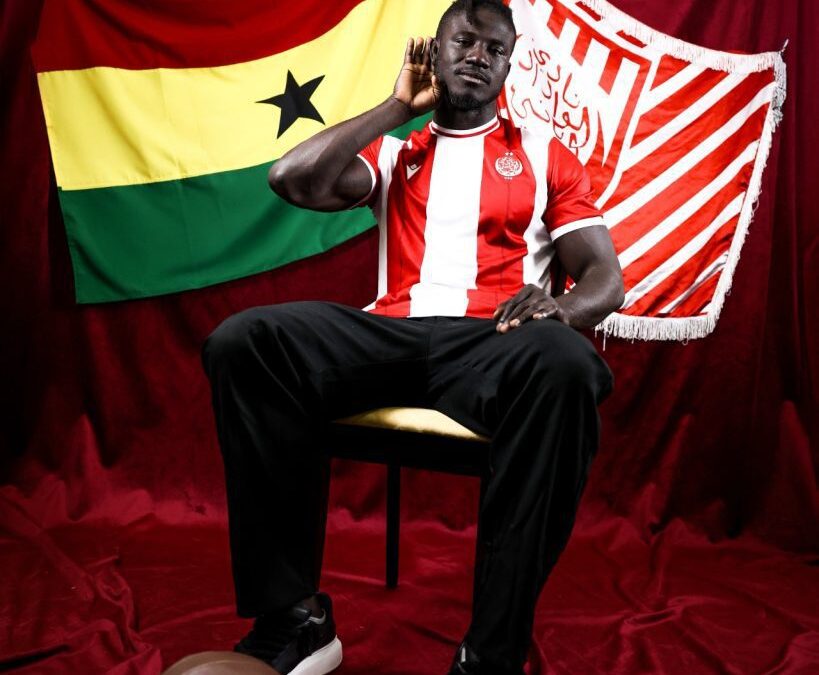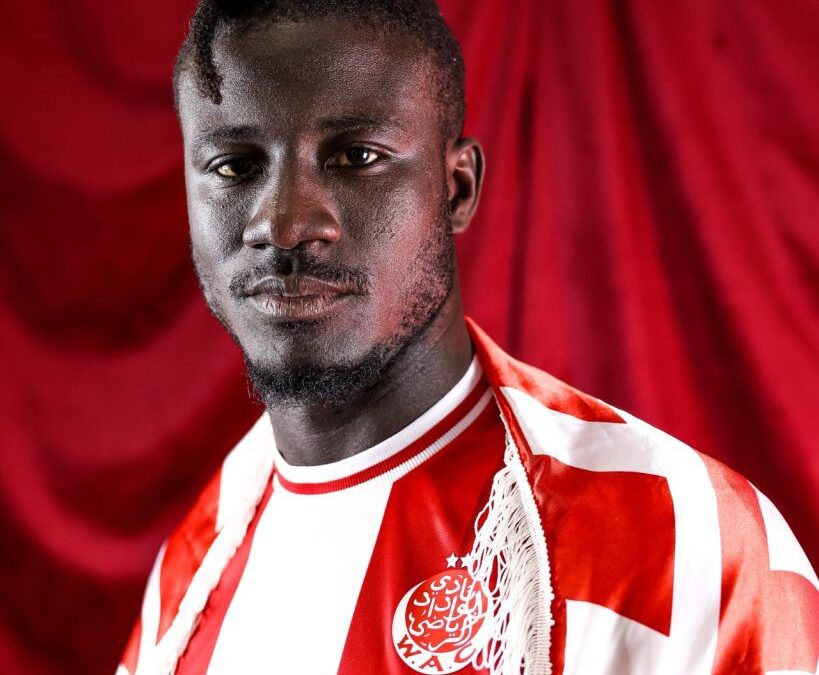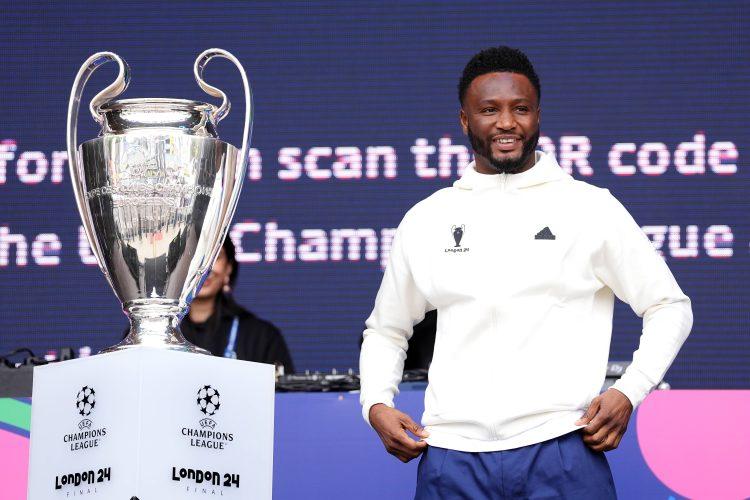
by Emmanuel Atanga | Feb 7, 2025 | Africa, Europe, Ghana, International, Soccer
Premier League Giants Set to Battle for Athletic Bilbao Star
Arsenal are gearing up for a major summer transfer move as they plan to activate the €60 million release clause of Athletic Bilbao’s dynamic winger, Nico Williams.
The 22-year-old, who has Ghanaian roots, has been a standout performer for both his club and the Spanish national team, drawing interest from top European sides. According to El Nacional, Arsenal are determined to bring Williams to the Emirates and are prepared to offer lucrative wages to outbid Barcelona, whose financial struggles could hinder their pursuit.
Williams, whose contract with Bilbao runs until 2027, is reportedly open to a Premier League switch, increasing the Gunners’ hopes of securing his signature. However, Arsenal face stiff competition, with Liverpool and Chelsea also closely monitoring the winger’s situation.
This season, Williams has contributed four goals and five assists across 30 appearances, reinforcing his reputation as one of Europe’s most exciting young attackers.

by Emmanuel Atanga | Feb 7, 2025 | Africa, Ghana, Soccer
After years of plying his trade in Europe, Ghanaian forward Samuel Obeng Gyabaa has embarked on a new journey, signing for Wydad Athletic Club in Morocco. For the first time in his career, the talented attacker will showcase his skills on African soil, eager to leave a mark on one of the continent’s football giants.
Obeng, who joined Wydad from Portuguese side Casa Pia, wasted no time in expressing his commitment to the club’s ambitions.
“Personally, I will give my best and collectively finish in a good position. In June, we will give our best in the World Cup for the fans and the club,” he said during his unveiling.
Having spent most of his career in Spain, featuring for clubs like Getafe, Girona, Real Oviedo, Granollers, and Calahorra, the 27-year-old forward is no stranger to top-level competition. His experience playing in North Africa at the 2019 CAF U23 Cup of Nations in Egypt, where he was Ghana’s standout performer with two goals, could prove vital in his adaptation to Moroccan football.
Under the guidance of South African coach Rulani Mokoena, Obeng is expected to play a crucial role in Wydad’s attack. With his hunger for success and proven talent, fans of the Casablanca-based club will be hoping he can fire them to glory in both domestic and continental competitions.
A new chapter begins, and all eyes will be on Obeng as he embraces this exciting challenge.

by Emmanuel Atanga | Feb 7, 2025 | Africa, Europe, Ghana, International, Soccer
Swiss Club Secures Talented Inter Milan Prospect on Loan
FC St. Gallen 1879 has taken a promising step toward strengthening its attack by securing the loan signing of 20-year-old winger Enoch Owusu from Inter Milan. The Italian-Ghanaian talent is set to train with the first team while initially gaining match experience with the U21 squad. The Swiss club also retains an option to make the move permanent.
Owusu, who honed his skills in Inter Milan’s renowned youth system, previously spent time on loan at Novara FC in Italy’s Serie C. While there, he made four appearances and provided one assist. His most notable performances, however, came in Primavera 1, where he played 57 matches for Inter’s U19 team, scoring ten goals and assisting four.
FC St. Gallen’s Head of Sport, Roger Stilz, expressed his enthusiasm for the signing:
“We have been interested in Enoch for a long time. He is a young, talented offensive player who can be used flexibly. His integration into our training program, alongside first-team sessions and U21 match time, will help him develop. We are happy to have him with us.”
With St. Gallen offering a platform for young talents to flourish, Owusu now has the opportunity to showcase his potential and take the next step in his career.

by Emmanuel Atanga | Feb 7, 2025 | AFCON, Africa, Europe, Ghana, International, Soccer, World Cup
For Samuel Obeng, football has always been about taking bold steps. From his early days in Spain to his rise with Ghana’s U23 team, the journey has been anything but ordinary. Now, the 27-year-old forward is embracing a fresh challenge—his first stint in African club football with Moroccan giants Wydad Athletic Club.
After years in Spain, playing for clubs like Real Oviedo, Girona, and Getafe, Obeng has decided to take his talents to North Africa, a region he first experienced during the 2019 CAF U23 Cup of Nations in Egypt. There, he shone as Ghana’s standout performer, scoring two crucial goals.
His move to Wydad is more than just a transfer—it’s a mission. The Moroccan powerhouse has a history of competing on the biggest stages, and with the FIFA Club World Cup approaching in June, Obeng is eager to make an impact.
“I chose Wydad because of their ambitious project and the confidence the coach and club have in me,” Obeng said after his unveiling. “Personally, I will give my best, and collectively, we want to finish in a strong position. In June, we will give our all for the fans and the club.”
Under the guidance of South African coach Rulani Mokoena, Obeng is expected to play a vital role in Wydad’s attack. With his blend of European experience and familiarity with African football, he could be the spark Wydad needs to shine on the world stage.
A new adventure begins, and Samuel Obeng is ready to make his mark.

by Emmanuel Atanga | Feb 7, 2025 | Africa, Europe, International, Nigeria, Soccer
Former Super Eagles and Chelsea legend John Mikel Obi has settled one of African football’s biggest debates—who is the greatest of all time?
In a thrilling elimination-style interview with GOAL, Mikel faced a series of tough choices. Sadio Mane vs. Didier Drogba? He picked Drogba. Samuel Eto’o vs. George Weah? He went with the only African Ballon d’Or winner, Weah. Riyad Mahrez vs. Mohamed Salah? Salah got the nod. And in a clash of midfield maestros, he chose Yaya Touré over Jay-Jay Okocha.
As the competition narrowed, Mikel found himself choosing between two African icons—Drogba and Yaya Touré. Though both had glittering careers, the bond he shared with Drogba at Chelsea proved decisive.
“Oh my God, I played with him for so many years and we won everything together, so I have to go with Didier,” Mikel concluded.
Having lifted the UEFA Champions League, Europa League, multiple Premier League titles, and FA Cups together, Mikel’s pick wasn’t just about stats—it was about a brotherhood forged in victory.





